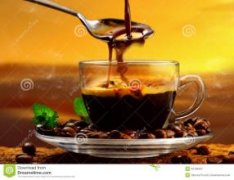A brief introduction to the Market Price of El Salvador Himalayan Fine Coffee Bean varieties with good quality

Central American countries generally distinguish quality grades by altitude, such as Costa Rica, Guatemala, Mexico, Honduras and other countries. Similarly, El Salvador is graded by altitude. At high altitudes, due to the cold climate and slow coffee growth, the density of raw beans will be higher, the hardness will be stronger, the unique acidity of Arabica will be better, and of course the better the quality will be. Therefore, the higher the altitude of coffee growth, the better the flavor, on the contrary, the lower the altitude, the higher the temperature, the faster the growth rate, the lower density, the lower hardness and the worse quality of raw beans.
So much for the introduction of Savaldo, so let's go back to the original topic: what surprised me?
Finally, for the way this coffee is made, I personally recommend hand brewing. Hand flushing can show its unique charm and experience its rich aroma step by step in the process of grinding and extraction. In addition, it can also be extracted by siphon, which shows the same characteristics as Yega Schiffe.
In El Salvador, the coffee beans rich in the Kuskabapa region are the best, slightly lighter, fragrant, pure and slightly sour. Like Guatemala and Costa Rica, coffee in El Salvador is graded according to altitude, and the higher the altitude, the better the coffee. The best brand is Pip, whose quality has been recognized by the American Organic Certification Society. Another rare coffee is Parkmara, a hybrid of Pacas coffee and Marago Rippi coffee, best produced in western El Salvador, adjacent to Santa Ana, which is close to the border with Guatemala. Parkmara coffee is full-grained, but not very fragrant
The first El Salvador to drink is washed beans, medium-shallow baked, warm and gentle, smooth entrance, sour and sweet mellow thickness are very regular, do not have too prominent flavor characteristics, so do not leave too much impression. But the flavor of tanning El Salvador becomes very recognizable and amazing. After grinding, the dry aroma gives off a pleasant tropical fruit aroma, followed by steaming, extraction, and until the end, a steady stream of jackfruit aroma. As soon as the extraction is over, I can't wait to take a sip. Strawberries, brown sugar, faint spices, and then two more sips, the creamy taste can be described with an advertising phrase-"silky at the moment." . This country is a small coffee-producing country, which is very suitable for honey treatment and solarization. On the whole, honey treatment and sun treatment have also given a new soul to El Salvador. The long-lasting taste is rich, sweet and sour, chocolate, unique tropical fruit notes, let people remember deeply.
El Salvador's coffee accounts for 40% of the country's exports, and it is usually picked in November, December and March next year. The export of raw beans lasts almost all year round. Coffee is produced in seven of the country's 14 provinces, with the largest number in the northwestern provinces of chalatenango and santa ana. El Salvador produces 100% Arabica coffee, 68% of which is bourbon, which usually grows at an altitude of 1062 Mel 1972 meters. On the other hand, El Salvador has a unique mountain, river and plateau, which provides a suitable environment for the growth of bourbon coffee. At the same time, El Salvador's suitable temperature, abundant precipitation and fertile soil are also indispensable natural conditions for breeding high-quality coffee beans.
Salvadoran coffee, like other typical island beans, is well-balanced, soft and good in texture.
Central American countries generally distinguish quality grades by altitude, such as Costa Rica, Guatemala, Mexico, Honduras and other countries. Similarly, El Salvador is graded by altitude. At high altitudes, due to the cold climate and slow coffee growth, the density of raw beans will be higher, the hardness will be stronger, the unique acidity of Arabica will be better, and of course the better the quality will be. Therefore, the higher the altitude of coffee growth, the better the flavor, on the contrary, the lower the altitude, the higher the temperature, the faster the growth rate, the lower density, the lower hardness and the worse quality of raw beans.
So much for the introduction of Savaldo, so let's go back to the original topic: what surprised me?
The first El Salvador to drink is washed beans, medium-shallow baked, warm and gentle, smooth entrance, sour and sweet mellow thickness are very regular, do not have too prominent flavor characteristics, so do not leave too much impression. But the flavor of tanning El Salvador becomes very recognizable and amazing. After grinding, the dry aroma gives off a pleasant tropical fruit aroma, followed by steaming, extraction, and until the end, a steady stream of jackfruit aroma. As soon as the extraction is over, I can't wait to take a sip. Strawberries, brown sugar, faint spices, and then two more sips, the creamy taste can be described with an advertising phrase-"silky at the moment." . This country is a small coffee-producing country, which is very suitable for honey treatment and solarization. On the whole, honey treatment and sun treatment have also given a new soul to El Salvador. The long-lasting taste is rich, sweet and sour, chocolate, unique tropical fruit notes, let people remember deeply.
El Salvador's coffee accounts for 40% of the country's exports, and it is usually picked in November, December and March next year. The export of raw beans lasts almost all year round. Coffee is produced in seven of the country's 14 provinces, with the largest number in the northwestern provinces of chalatenango and santa ana. El Salvador produces 100% Arabica coffee, 68% of which is bourbon, which usually grows at an altitude of 1062 Mel 1972 meters. On the other hand, El Salvador has a unique mountain, river and plateau, which provides a suitable environment for the growth of bourbon coffee. At the same time, El Salvador's suitable temperature, abundant precipitation and fertile soil are also indispensable natural conditions for breeding high-quality coffee beans. Salvadoran coffee, like other typical island beans, is well-balanced, soft and good in texture.
Important Notice :
前街咖啡 FrontStreet Coffee has moved to new addredd:
FrontStreet Coffee Address: 315,Donghua East Road,GuangZhou
Tel:020 38364473
- Prev

El Salvador Himalayan boutique coffee beans with long-lasting and rich rhyme
In El Salvador, the coffee beans rich in the Kuskabapa region are the best, slightly lighter, fragrant, pure and slightly sour. Like Guatemala and Costa Rica, coffee in El Salvador is graded according to altitude, and the higher the altitude, the better the coffee. The best brand is Pip, whose quality has been recognized by the American Organic Certification Society. In addition
- Next

The cultivation of El Salvador Himalayan boutique coffee beans with excellent balance geographical location and climate sea
El Salvador's coffee accounts for 40% of the country's exports, and it is usually picked in November, December and the 13th of the following year. The export of raw beans lasts almost all year round. Coffee is produced in seven of the country's 14 provinces, with the largest number in the northwestern provinces of chalatenango and santa ana. The coffee produced in El Salvador is 100% Arabica, of which 68% is
Related
- Detailed explanation of Jadeite planting Land in Panamanian Jadeite Manor introduction to the grading system of Jadeite competitive bidding, Red bid, Green bid and Rose Summer
- Story of Coffee planting in Brenka region of Costa Rica Stonehenge Manor anaerobic heavy honey treatment of flavor mouth
- What's on the barrel of Blue Mountain Coffee beans?
- Can American coffee also pull flowers? How to use hot American style to pull out a good-looking pattern?
- Can you make a cold extract with coffee beans? What is the right proportion for cold-extracted coffee formula?
- Indonesian PWN Gold Mandrine Coffee Origin Features Flavor How to Chong? Mandolin coffee is American.
- A brief introduction to the flavor characteristics of Brazilian yellow bourbon coffee beans
- What is the effect of different water quality on the flavor of cold-extracted coffee? What kind of water is best for brewing coffee?
- Why do you think of Rose Summer whenever you mention Panamanian coffee?
- Introduction to the characteristics of authentic blue mountain coffee bean producing areas? What is the CIB Coffee Authority in Jamaica?

